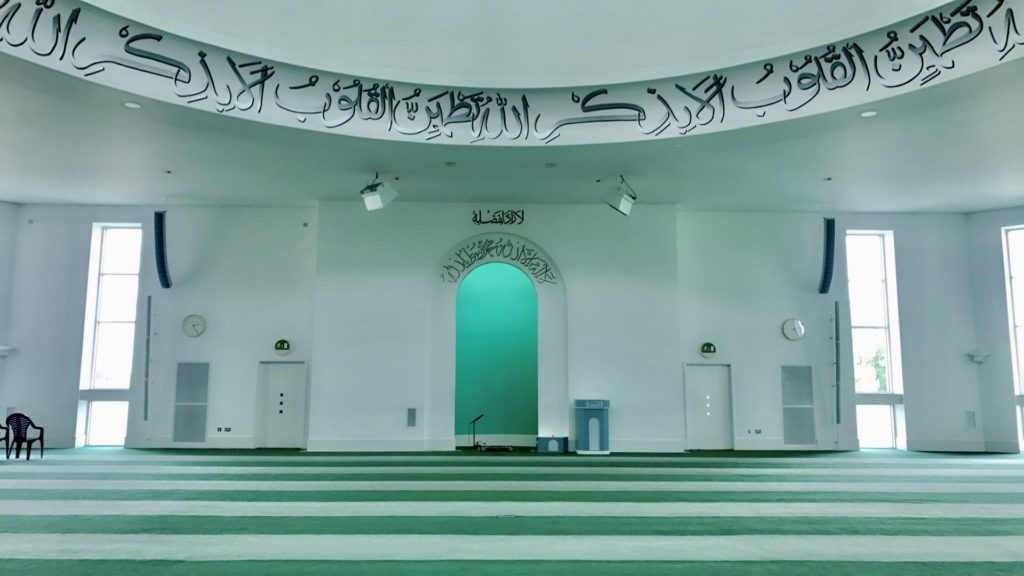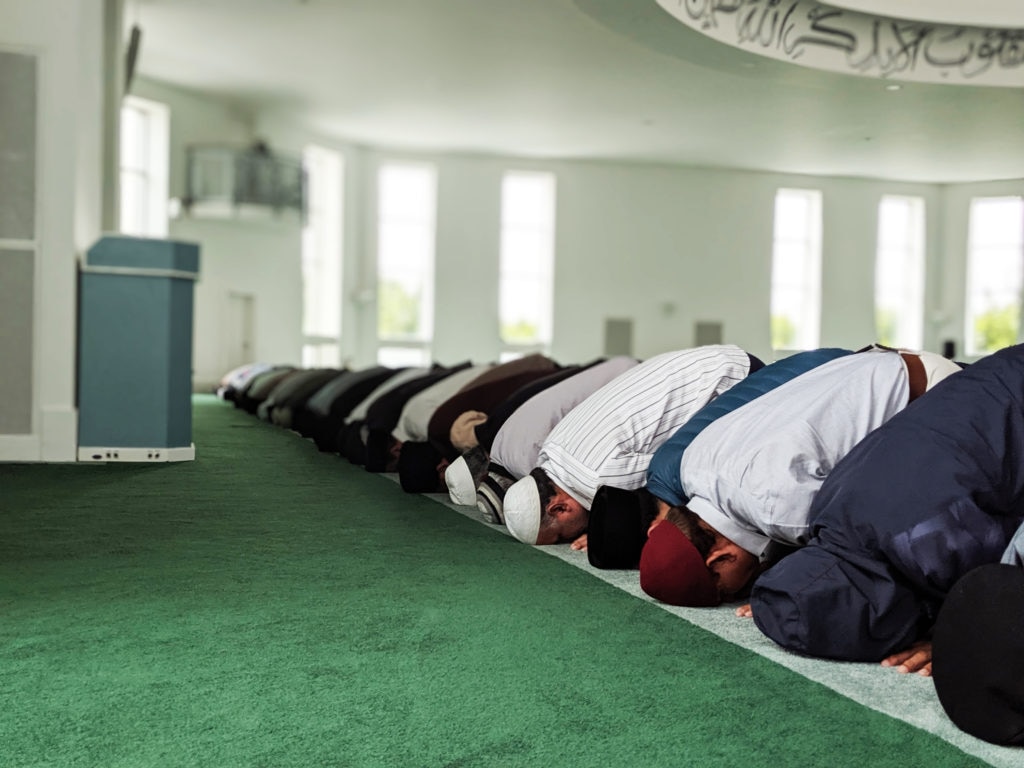Anees Ahmad Nadeem, Missionary in-charge, Japan

With all continents now within its pale, the coronavirus has turned into a pandemic. For lack of medical facilities in their days, Spanish Flu and the Black Death have been seen so far as the worst striking of all pandemics in modern history. However, in this age of communication, technological excellence and advancement in medical sciences, Covid-19 seems to have surpassed all pandemics in its footprint and pace.
What raises the Covid-19 pandemic above all pandemics of modern history is how it has led to distancing and isolating in a world that is closely knit through modern means of communication; the global village where mankind has got used to staying in touch, more than ever before.
Religious circles face challenges of a different nature. Where the rest of the world is disturbed due to social distancing as a purely social challenge, religious circles are having to see how certain worships and rituals that call for congregation are to be practised.

We leave the Pope’s mass and the wailing wall aside and come straight to Islamic modes of congregational worship. Despite the fact that certain Muslim circles seem to be the most agitated on the issue of congregations being cancelled, it is none else but Islam that gives the most flexible and practical advice in such situations. It had to be the faith of Hazrat Muhammadsa – the mercy for all worlds – that had to have the most reasonable approach in such precarious times.
We have seen Hazrat Khalifatul Masih V, may Allah be his Helper, instructing all Ahmadi Muslims to observe all precautionary measures that are being advised by experts and governmental authorities. Huzooraa has asked for congregations not to be held in countries where authorities have banned gatherings. In line with the basic teachings of Islam Ahmadiyyat, Huzooraa wants us to do everything that is of greater benefit and in wider interest of mankind.
Not being able to convene for the Friday congregations is obviously not a pleasant occurring; but then neither is it a matter of choice. We have the Holy Quran and practices of the Holy Prophetsa guiding us in such situations:
1. In the Holy Quran, Allah the Almighty commands us to obey Him, His Prophet and the Ulil Amr (those in authority). The law of the land being representative of governmental authorities. (Surah an-Nisa, V. 60)
2. When calling worshippers to mosques, Allah the Almighty provided great guidance through the words:
ومن دخلہ کان آمنا
This means that congregational prayers in mosques should be done only when safety of oneself and of others in not jeopardised.
3. Allah the Almighty gave concession in the way Salat is meant to be offered. By saying فان خفتم فرجالا اورکبانا, believers are given specific instruction that should there be a state of fear (like in war) offer Salat on the backs of horses or camels or even walking on foot.
4. For Hajj – which is an obligation for all Muslims – the condition of safety, security and good health shows that Allah the Almighty has prescribed all modes of worship for the wellbeing of mankind. من استطاع الیہ سبیلا (i.e those who can perform the Hajj safely and have the means to) shows the great love and care Allah the Almighty has for those who commit themselves to Him and His worship.
5. The sick are allowed to offer Salat in whatever position is most suitable for them; those on extreme dependence can pray even lying in bed with mere gestures. Women who are expecting or feeding their babies and those who are chronically ill are graciously allowed to pay fidya in lieu of their fasts; those with acute illnesses can skip fasts in the prescribed month, but make up for it by fasting when they have recovered.
6. Traditions of the Holy Prophetsa (agreed upon by Bukhari and Muslim) relate that he would tell the believers that in scorching heat, they could say Salat in a relatively cooler time (within the band of prescribed times). We all know that combining Zohr with Asr and Maghrib with Isha is a practice of the Holy Prophetsa when mitigating circumstances permit.
7. The ahadith that Huzooraa quoted today in his special live message (27 March 2020) tell us that the Holy Prophetsa rephrased the Azan (call for prayer) in times of heavy rains, storms and other incapacitating calamities: The words “come to Salat” were replaced by “Say Salat in your homes”.
8. Bai‘at, as we all know, requires physical contact when being done in congregation. A delegation of Bani Saqeef visited the Holy Prophetsa and performed Bai‘at at his hand. One of them suffered from leprosy – which is contagious – and was told by the Holy Prophetsa:
انا قد بایعناک فارجع
meaning, “your Bai‘at has been accepted and you may return with others.” This tradition is recorded in both Bukhari and Muslim.
9. Both Bukhari and Muslim record the Holy Prophet’ssa words as follows:
اذسمعتم بالطاعون بارض فلاتدخلوھا واذ اوقع بارض و انتم بھا فلا تخرجو
(“When you come to know of an outbreak of plague in a region, do not visit it; if you live in the region of the outbreak, do not leave it”)
10. Bukhari and Muslim relate that the Holy Prophetsa instructed Muslims not to bring any protective weapon like a spear or arrow or a knife to the mosque, lest it accidentally injured someone in presence. If the Holy Prophetsa took so much care of the wellbeing of the worshippers, would he want people to bring with them contagious illnesses? Of course not!
11. The Promised Messiahas – an absolute reflection of the Holy Prophetsa – said:
“Each one of you should, according to their understanding and capacity should indulge in acts of welfare for humanity. One without sympathy is not human. Equally essential is not to doubt the instructions and measures prescribed by the government”.(Majmua-e-Ishtiharat, Tract number 188)


JazakAllah for this article. A must read for all!
Mash’Allah Jazakamullah ta’ala asanal jaza
Saeed Ahmad Rafiq
Birmingham East
The Stanley Cup is actually North America’s
oldest sporting activities trophy, and has actually been actually awarded yearly to the National Hockey League’s champion given that 1927.
In the late 1800s until the mid-1920s, the trophy, which was actually given by Governor
General of Canada Lord Stanley Preston, was actually provided the best
crew in the Amateur Association of Canada.